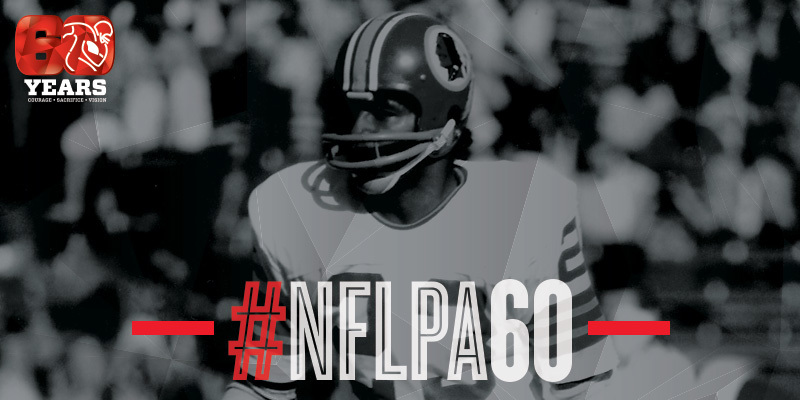60 Heroes: Brig Owens Continues to Push Union Forward

When the Washington Redskins traded for Brig Owens, then a second-year defensive back, in 1966, it began in earnest a career that epitomized solidarity and loyalty both on and off the football field.
During his 12 seasons with the Redskins, Owens, along with former tight end/punter Pat Richter and center Len Hauss, established a union loyalty among the team, making Washington perhaps the strongest union team during the NFLPA’s 60-year history. That included the Redskins being just three teams to strike in favor of the New England Patriots’ walkout at the start of the 1975 season in protest of the owners’ failure to negotiate in good faith over a new collective bargaining agreement. It also set the foundation for not a single Redskins veteran crossing the picket line during the 1974 and 1987 player strikes.
Owens was elected to the NFLPA’s Executive Committee in 1975, serving there until his retirement in 1977. The next year, Owens joined the NFLPA staff, where he headed several of the union’s new projects including the NFLPA’s relationship with the U.S. Job Corps and the Unions for Youth programs as well as the new career counseling program established by the 1977 CBA. The one-time University of Cincinnati star also oversaw the union’s first drug counseling program and was a member of the group that helped negotiate the first joint counseling program for players.
Although he left the NFLPA to pursue other interests in 1983, Owens’s work for the players did not stop there. He’s been active in the Former Players group, serving as its president and on the steering committee. Owens also continues to head the “Super Leaders” program, which he established with the NFLPA to aid at-risk youth in the D.C. area through training and scholarships. That work, along with his many other ventures as an athlete, union leader and businessman, have made him a hero within multiple communities.